Hop contracting
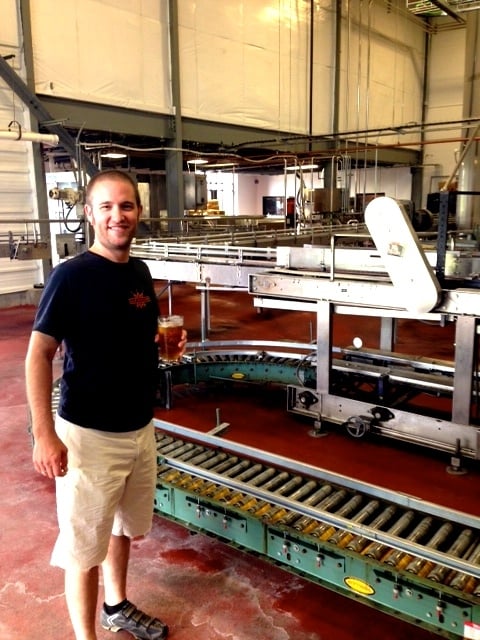
Chris Riphenburg, head brewery
Ale Asylum (Madison, Wis.)
In today’s modern brewing world, there are many different varieties of hops to choose from. Some varieties have massive acreage allocations while some have very small acreage allocations. Some varieties are grown in the United States, while others are grown in Germany, New Zealand, Australia, Czech Republic, France, United Kingdom and other places around the world. With so much demand for new varieties it’s hard to know when and how much to purchase for a brewing year. It’s important to understand that hops planted and harvested this year aren’t available to use until next year.
Hop contracting will ensure that you are allocated the amount needed for a given crop year. There are many different hops brokers and growers that can provide access and information about hop contracts. Choosing the variety and amount needed depends on a few key factors. Are you a brewpub or production brewery? Has your brand realized consistent growth? Do you anticipate creating new recipes in the future? Contracting three to four years in advance is a standard practice. It might seem scary to sign expensive contracts that haven’t been planted yet, but this ensures that the hop growers plant the proper acreage to supply the demand. It will be a lot more expensive to try and purchase hops on the spot market. And most times you won’t find the varieties you want to use on the spot market. So, be prepared for future growth of your popular brands. Being proactive about hop contracting will ensure brewery can brew and grow for years to come.
In fact, contract five years out

Jason Ebel, co-founder
Two Brothers Brewing Co. (Warrenville, Ill.)
As a member of the Supply Chain Subcommittee for the Brewers Association, I always encourage people to have their hop contracts in order. Hops are obviously a big part of brewing, and my advice is to contract your hops out five years in advance. With so many startups and new breweries popping up, a lot of the favorite hop farms are already claimed. You have to get into the hop contracting game right away and the best way to do that is to contract 100 percent of what you think you are going to need for the first two years. Then contract 80 percent in the third year, 60 percent in the fourth year and 40 percent in the fifth year. Each year you can add to that based on need. This will give you some wiggle room because you can never be sure of your growth pattern. The brand that is leading the way today won’t necessarily be leading the way tomorrow. You need flexibility, but you also need to show your commitment to the hop suppliers. This can help you accomplish both. My other suggestion would be to consider new growers that are regional to your brewery. There are some amazing hops that are being grown all over the country. Take a look at your local options that can help you become more sustainable and minimize your carbon footprint.
Maximize your hop potential with CO2 extract

Adam Schmitt, brewer
Founders Brewing Co. (Grand Rapids, Mich.)
Hops have always been the big topic among brewers. All of us are concerned if we will be able to get a piece of the hot new variety coming out, or if our contracts for current hops can be filled. After knowing what we have access to, it’s time to figure out what to do with them. Should we leave them as whole cones in bail form, process into pellets or even further to CO2 extract? Many of our recipes at Founders contain some extra-large hop strikes. Along with constant growth and more automation in the brewhouse, this caused us to really look at how we were utilizing our hops at the time.
We always thought pellets were the way to go but were beginning to have slight interest in CO2 extract. The first time we tried extract we dumped it from the can straight into our 30-barrel brewhouse hoping the strange goo would mix well and not just scorch to the bottom. We were also hoping the flavor of the extract would match the variety it was made from. The beer turned out great, and that got us thinking how we could use this compact form of hop in our larger automated brewhouse. Possible solutions for dosing our large hop strikes were on our minds during these upcoming trials. After converting our pellet amounts to extract for certain hop strikes, we found these trials worked as we had hoped with no negative flavor impact; in some cases we preferred the extract versions. This had also eliminated the enormous vegetative load in the dosing units, causing them to work perfectly and our knock out wort to have much less trub.
We had expected to gain brewhouse KO efficiency because of this as well, but with some beers the increase was greater than 10 percent. Overall, after just a few brews, we were hooked. CO2 extract had been a foreign substance to us at Founders for a long time, but we were much more comfortable implementing a new product after we educated ourselves and asked more questions. Extracts can be variety specific and made from the lots of hops you chose during selection. This is just one example of the many ways hops are processed and made available to brewers. I just want to encourage everyone to educate themselves on all forms of hop products out there and experiment as well. You may find the way you are currently using hops cannot be beat, but you may also find great gains as we have.
Try something innovative (like hydroponic hops)
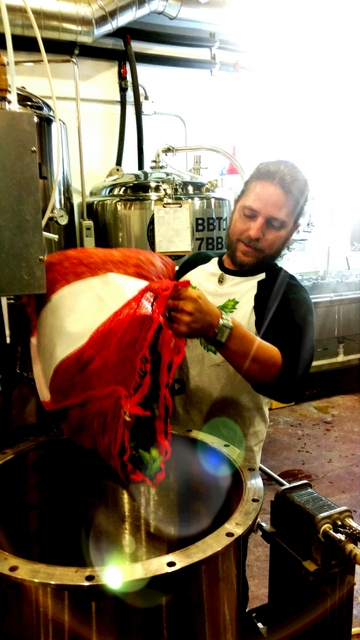
Colin Clark, head grower
Hydro Hop Farms (Fort Collins, Colo.)
The humble little hop cone has a long and complex story that is ever changing. It was once used for its anti-bacterial properties, then treasured for its high alpha bitterness and now people love its exotic aromas. Although the beer drinker will change and the role of hops will change, the good news is that the need for hops in beer will never change. In the spirit of innovation and constantly looking for ways to improve, at Hydro Hop Farms we aim to grow the hops of tomorrow and have created the world’s first hydroponic indoor hop farm. It’s our answer to the next chapter in the story of the hop. We challenge hop growers and brewers alike to really push the limits and think outside of the box. Lose the fear of ruining a batch of beer or plot of plants! Doing something well can easily be learned, doing something exceptional will come from experience and trial-and-error. Our innovations as a community will help keep craft beer on a steady rise in both popularity and quality.
What the farmer expects of brewers
Ali Capper, farmer
Stocks Farm (Worcestershire, England)
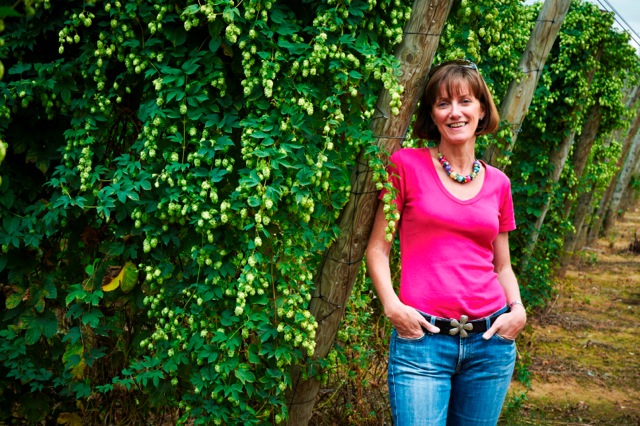
Farmers want what their customer needs from a breeding program, so from a hop breeder a craft brewer should expect beautiful hops that are good for pest and disease resistance, high yields and creativity of new aromas and flavors. As far as farmers go, craft brewers should expect a loyal, hard-working partnership. Hop farming is a long-term business. When a grower makes the investment in the wirework and posts to support a new hop yard, he is hoping that the investment will be good for at least 20 years. Growers are very dedicated, working hard to deliver the highest quality hops often against all the odds — like the weather — and in return they are seeking a partnership from their customers and brewers. That partnership needs to deliver sustainable returns and some sense of surety in the form of contracts for at least 3 years.
One point on sustainability. One of the most unique things about British hops is that very little of the total crop is irrigated, which makes them some of the most environmentally sustainable in the world. And to finish on the Stocks Farm philosophy: Listen hard to our customers, motivate our staff to produce the best quality hop crop possible, have fun with our brewer friends and operate an open door policy. Our craft brewing customers from anywhere in the world are welcome to visit any time of year to see what we do, and as it’s one of the most beautiful parts of the world, it’s definitely worth a visit.
Don’t undervalue the inspiration of hop farms

Brock Wagner, founder and brewer
Saint Arnold Brewing Co. (Houston)
Getting the right type, quantity and quality of hops, all for the right price takes involvement from the brewer. First, you need to contract. We contract out for our current needs for five years and assume zero growth. Then the following year, if our needs have increased, we contract out for the incremental amount for the next four years and the total amount in year five. This lessens the chance of being over-contracted which is as big a problem as under-contracted.
Second, go visit the farms. Hordes of brewers go to Yakima every year, us included. We also go to Germany and Czech where American craft brewers are a more unusual sight. Our visits result in us getting a higher grade of hop than we would otherwise receive. Also the co-op we purchase from has learned what we like in our Hersbrucker and the offerings they have for us to select from reflect this. Our visits also put us first in line for experimental hops. Finally, don’t undervalue the inspiration that visiting hop growers and doing hop selection has on your brewing team. I come back every year with a renewed appreciation of the hop and a few ideas for new test brews.
Physically and financially support local growers

Steven Courier, chief brewer
SLO Brewing Co. (San Luis Obispo, Calif.)
Here at SLO Brewing Co., we are lucky to have a good relationship with a local hop grower. This grower graduated from the local college with an ag degree and was looking for something to grow on her property when she happened into hops. On a trip to Washington state she saw for the first time hop fields in full bloom and fell in love. After some research she realized that there was a shortage of hops and committed to growing them. We brewed our first wet hop IPA two years ago, and it turned out to be one of our favorites. She yielded about 70 lbs that first year and the fresh hops went into the beer the next day. The following year she planted more rhizomes, but with the drought taking hold here in California, she actually yielded less, about 40 lbs.
To keep her from getting too frustrated and to encourage her to continue growing hops, we decided it was time for SLO Brew to step up and help out. We started by getting a crew of employees together to go out to the hop farm and help pick. This was a great opportunity for them to learn and get some hands on experience and also proved to be a great team building exercise. It helped her out tremendously, turning a long two day job into a fun five hour job. It also allowed us to use the hops 4 hours after picking instead of waiting a day. Next we changed the structure by which she would be compensated for her hops. Instead of giving her a flat rate per pound of hop, we are giving her a percentage of the sales of our fresh hop IPA. Instead of making a few hundred dollars, she will make a few thousand dollars, and we are happy to do it. We are helping out a local grower, we get to promote our close relationship and, somewhat selfishly, we get to continue brewing one of our favorite beers.


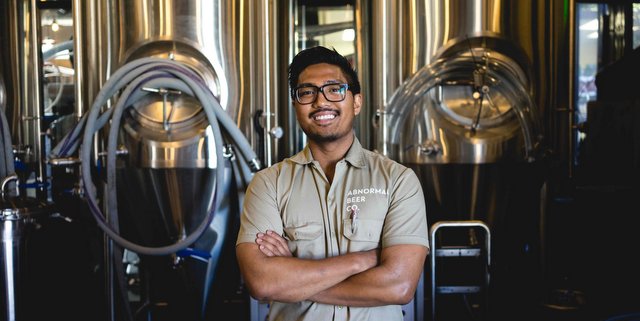

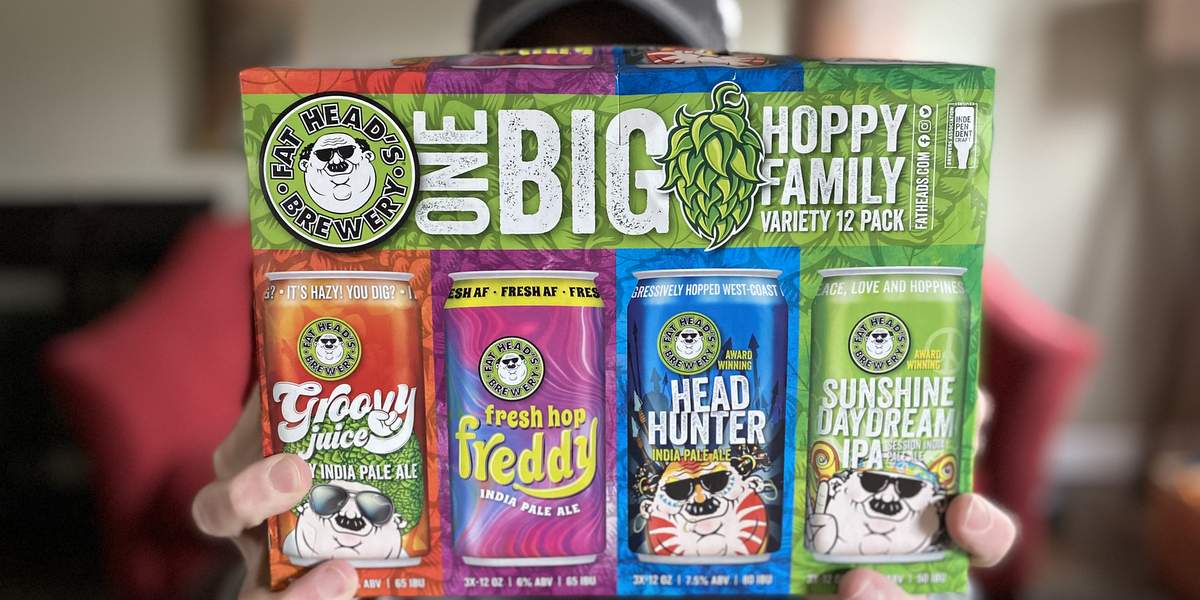

The business of hops: Craft professionals share advice from farming to contracting https://t.co/TBP4BPi9yF #CraftBeer
The business of hops: Craft professionals share advice from farming to contracting https://t.co/LhG85ULHHX
RT @MightyAxeHops: We’re not hops farmers. We’re lupulin farmers. #localhops #MNHops https://t.co/C7GRPsOR0K
We’re not hops farmers. We’re lupulin farmers. #localhops #MNHops https://t.co/C7GRPsOR0K
The business of hops: Craft professionals share advice from farming to contracting https://t.co/F2ryB0Xit8 via @craftbrewingbiz
RT @RogueAles: We gave @CraftBrewingBiz tips on how to protect your #hopyards this winter: https://t.co/K874bbiqwk
Advice from DG on the business of hops? “Find your Fritz”
Read here: https://t.co/5314yp86gA
(?: Vicki Thompson) https://t.co/95yJakm0s0
We gave @CraftBrewingBiz tips on how to protect your #hopyards this winter: https://t.co/K874bbiqwk
Gina Schmitt liked this on Facebook.
#CraftBeer professionals share advice from farming to contracting https://t.co/Dv3y6Kgf8i https://t.co/mcbYZYNl5W
The business of hops: Craft professionals share advice from farming to contracting https://t.co/93WOyK2tOV
The business of hops: Craft professionals share advice from farming to contracting https://t.co/2Z8t1ivwqH #beer #craftbeer
RT @CrosbyHopFarm: Read about “The Evolution of Hop Hash” at @CrosbyHopFarm https://t.co/ViH6Hudi8g
The business of hops: Craft professionals share advice from farming to contracting https://t.co/eI2HXh93Dl
Nate Fochtman liked this on Facebook.
The business of hops: Craft professionals share advice from farming to contracting https://t.co/UK0nBHJZjD via @craftbrewingbiz
RT @Schlafly: Our man Dan talking with @CraftBrewingBiz about the benefits of knowing your hop farmer. https://t.co/nKWJ5q3M0T https://t.co…
RT @OkellsAles: The business of hops: Craft professionals share advice from farming to contracting https://t.co/gy3wuHxyoS
RT @OkellsAles: The business of hops: Craft professionals share advice from farming to contracting https://t.co/gy3wuHxyoS
RT @OkellsAles: The business of hops: Craft professionals share advice from farming to contracting https://t.co/gy3wuHxyoS
The business of hops: Craft professionals share advice from farming to contracting https://t.co/gy3wuHxyoS
Tanja Jancic-Klemencic liked this on Facebook.
Jim Sung liked this on Facebook.
Jophiel Lok liked this on Facebook.
Serge Lubomudrov liked this on Facebook.
RT @crsimp01: The business of hops: Craft professionals share advice from farming to contracting https://t.co/NKIvIHe5wo via @craftbrewingb…
RT @Schlafly: Our man Dan talking with @CraftBrewingBiz about the benefits of knowing your hop farmer. https://t.co/nKWJ5q3M0T https://t.co…
RT @Schlafly: Our man Dan talking with @CraftBrewingBiz about the benefits of knowing your hop farmer. https://t.co/nKWJ5q3M0T https://t.co…
RT @Schlafly: Our man Dan talking with @CraftBrewingBiz about the benefits of knowing your hop farmer. https://t.co/nKWJ5q3M0T https://t.co…
Our man Dan talking with @CraftBrewingBiz about the benefits of knowing your hop farmer. https://t.co/nKWJ5q3M0T https://t.co/7wbDGhHvAE
Cynthia Chevarría Rodríguez liked this on Facebook.
RT @LaurelwoodBeer: A great article featuring our friends at @CrosbyHopFarm… “The Business of Hops,” https://t.co/KV9adAEljk via @craftbr…
RT @LaurelwoodBeer: A great article featuring our friends at @CrosbyHopFarm… “The Business of Hops,” https://t.co/KV9adAEljk via @craftbr…
A great article featuring our friends at @CrosbyHopFarm… “The Business of Hops,” https://t.co/KV9adAEljk via @craftbrewingbiz #craftbeer
The Business of Hops – https://t.co/hZ15RwdsUC – article @CraftBrewingBiz – #hops #beer #craftbeer #brewing
We let our friends at @CraftBrewingBiz know how we protect our hops during the winter. https://t.co/YGJtWIqN0q #DIY https://t.co/S8t3I8ONn1
The business of hops: Craft professionals share advice from farming to contracting https://t.co/NKIvIHe5wo via @craftbrewingbiz
The biz of hops: @GBBrewingCo says building a relationship w/ a grower is key: https://t.co/jlcGLM00SQ Thanks @CraftBrewingBiz #craftbeer
#CraftBeer #CraftBrewing #Beer #BeerBiz The business of hops: Craft professionals share advice from farming to … https://t.co/o8oPGPGVaZ
RT @CraftBrewingBiz: The business of hops: Craft professionals share advice from farming to contracting. #hops https://t.co/8hZCoUU0vD
Read about “The Evolution of Hop Hash” at @CrosbyHopFarm https://t.co/ViH6Hudi8g
@CrosbyHopFarm featured in “The business of hops: Craft professionals share advice from farming to contracting” https://t.co/dehcXMRtKG